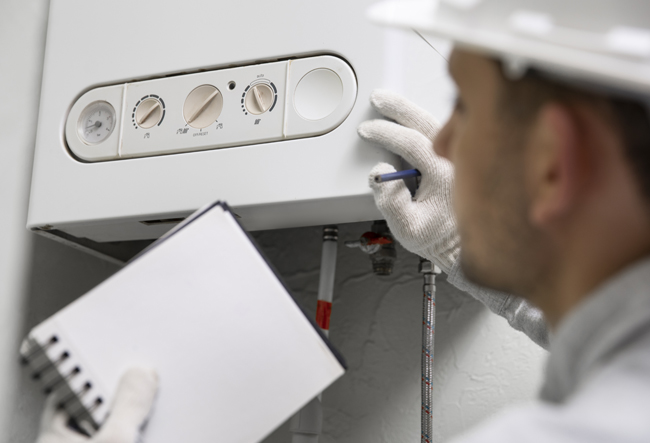
Why Your Stafford, VA Water Heater Won’t Recover After a Power Outage
Introduction
Power outages are common in Stafford, especially during heavy storms or sudden electrical interruptions. For many homeowners, the first thing they notice when the power returns is that the water heater still isn’t working. This situation can be confusing and inconvenient—after all, it seems like everything else in the house is back to normal.
In this article, we’ll explain why this happens, what you can check safely on your own, and when to call a plumber for help.
What Happens to Water Heaters During a Power Outage
When power cuts off, electric and gas water heaters behave differently. Understanding how each one responds helps you figure out what’s going on.
Electric Water Heaters
These rely entirely on electricity for heating. When an outage occurs, the internal thermostat, heating elements, and safety reset switch are all affected. Once power comes back, any small surge or fluctuation might trip the reset button or breaker, stopping the heater from turning back on.
Gas Water Heaters
Gas models use electricity only for ignition and control systems. During a blackout, the pilot light may go out, or the control board might fail to restart properly when power returns. Some modern gas heaters have safety locks that must be manually reset after an interruption.
Common Reasons Your Water Heater Won’t Recover
After a power outage, several things can prevent your water heater from reheating properly. Before listing them, it’s important to remember that troubleshooting should always be done with safety in mind. If you’re unsure, it’s best to contact a licensed plumber rather than risk electrical or gas hazards.
Tripped Breaker or GFCI Outlet
Power surges often trip the circuit breaker that protects your water heater. Even if it looks “on,” flipping it fully off and back on can restore function.Burned Heating Element
Surges can damage the electric elements that heat water. If your water stays cold after power is restored, one or both elements may have failed.Faulty Thermostat
The thermostat controls temperature inside the tank. A short power interruption can cause it to misread or shut down.Pilot Light Extinguished
For gas models, a power outage may cut gas flow or extinguish the pilot light, which must be relit following the manufacturer’s instructions.Power Surge Damage
A strong surge can harm internal circuits or sensors. If the heater doesn’t respond to resets, it may need professional diagnosis or replacement parts.
Step-by-Step: How to Troubleshoot Safely
If your water heater still isn’t working, there are a few safe checks you can perform before calling for service. Each step below should be done carefully and with the power turned off when necessary.
Check Your Breaker Panel
Make sure the water heater breaker is in the ON position. If it’s tripped, reset it once and wait to see if the heater restarts.Press the Reset Button
Most electric models have a small red reset button located behind the upper panel. Press it firmly once, then listen for a click.Wait for Reheating
It can take 30–60 minutes for water to heat up after power restoration. Avoid constant switching—it can damage components.Inspect the Pilot Light (Gas Models)
If your gas heater has no hot water, check the pilot light window. If it’s out, follow the manufacturer’s guide or contact a plumber to relight it safely.Call a Professional if Issues Persist
If none of these steps restore your hot water, the outage may have caused an internal fault that requires repair or replacement.
Preventing Damage from Future Outages
Preparing your water heater for unexpected power interruptions can save you from costly repairs and long periods without hot water. Here are some preventive tips to keep in mind:
Use Surge Protectors
Install a surge protector or dedicated circuit for your heater to reduce electrical damage.Schedule Annual Maintenance
Routine inspections help identify weak components before they fail during storms.Drain Sediment Build-Up
Sediment accumulation forces the heater to work harder and may worsen recovery after an outage.Have a Professional Inspection After Major Outages
If your home experiences repeated surges or flickering power, have a plumber or electrician check for damage in connected systems.
FAQs
Why is my water heater making noise after a power outage?
Sediment or air pockets may shift inside the tank when power returns. The popping or rumbling sounds are temporary but indicate the need for maintenance.
Can a power outage reset my water heater’s timer or settings?
Yes. Many newer models have digital controls that lose saved settings during outages. Check your temperature and schedule once power is restored.
Is it safe to turn my water heater back on immediately after power comes back?
Wait a few minutes after power returns. Rapid voltage fluctuations can harm components if you restart too quickly.
Why is my hot water discolored after a blackout?
Power loss can stir sediment or rust in the tank. Run the hot water tap for several minutes until it clears. If it persists, it may indicate corrosion.
What’s the best temperature to set my water heater after resetting it?
A setting of around 120°F is usually ideal—hot enough for comfort but safe against scalding and energy waste.
Conclusion
A power outage can easily interrupt how your water heater functions, but understanding what happens behind the scenes helps you respond calmly and safely. Whether it’s a tripped breaker, a pilot issue, or internal damage, the key is knowing when to troubleshoot and when to call professionals.
If you’re in Stafford, VA and your water heater still won’t recover after an outage, professional inspection and repair ensure your system runs efficiently and safely once again.